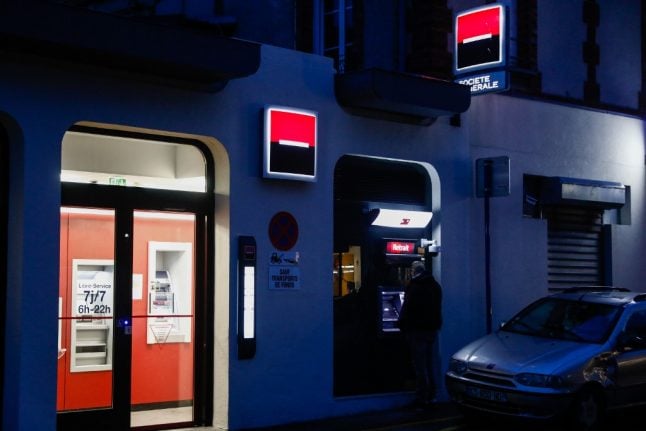The net loss of €1.26 billion for the three months to June compared with a profit of more than €1 billion in the same period a year earlier and follows a loss of 326 million euros in the first quarter.
“This quarter has been sharply impacted by the Covid-19 global health crisis and its economic repercussions,” Société Générale said in a statement.
Net banking income – a bank's core measure of profitability – tumbled 13.5 percent, with all business areas affected except for private banking, asset management and financial and consultation services.
Given the uncertain outlook, the bank said it had put aside 653 million euros to cover losses during the three months.
While most banks have suffered badly in the coronavirus pandemic like Société Générale, its French peer BNP Paribas bucked the trend, managing to report Friday only a slightly lower second quarter net profit of €2.3 billion thanks to a surge in investment banking.
BNP however was also forced to more than double provisions to €1.4 billion.
Société Général said it had been forced into two large write-downs – €700 million on its markets activities, plus another €650 million on certain tax benefits.
Despite the loss and difficult environment, the bank's capital adequacy position remained strong, at 12.5 percent at end-June compared with 12.6 at end March.
Société Générale said the clear challenge now was to adapt to the changes brought by the pandemic.
“If the months of April and May were marked by a reduction in activity in many economies around the world, the rebound since mid-May has been encouraging,” bank chief Frederic Oudea said in the statement.
“Supported by a very solid capital base and a loan book of intrinsic quality, the bank is going to continue the adjustment of its business to the new post-COVID environment, extending notably its cost-cutting efforts,” Oudea said
Société Générale said it had reduced its second quarter costs by 10 percent compared with the 2019 period.
“The group is already working on its 2021-23 strategy around three priority objectives – the importance of the client, social and environmental responsibility, and operational efficiency based on new digital technologies,” Oudea said.



 Please whitelist us to continue reading.
Please whitelist us to continue reading.
Member comments